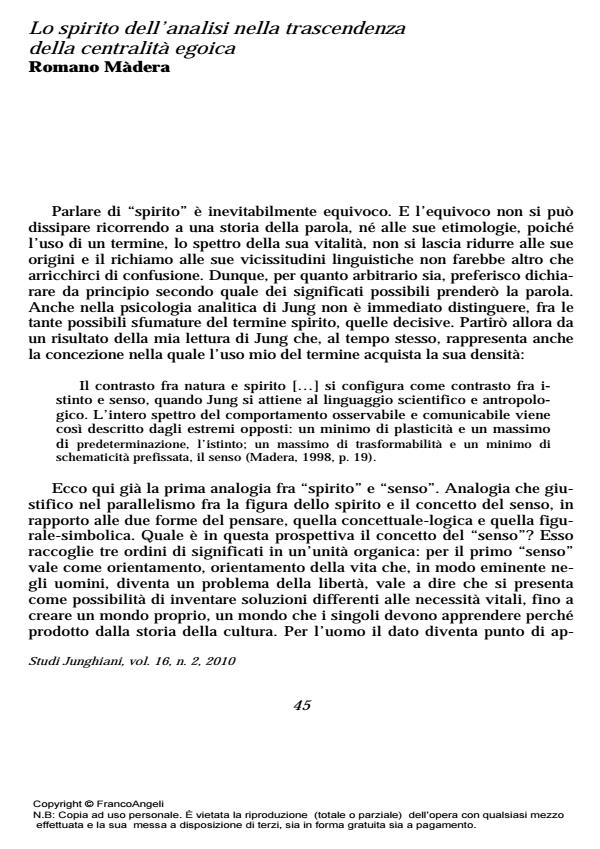The spirit of analysis in the transcendence of the Ego-centrality
Journal title STUDI JUNGHIANI
Author/s Romano Màdera
Publishing Year 2011 Issue 2010/32
Language Italian Pages 14 P. 45-58 File size 86 KB
DOI 10.3280/JUN2010-032003
DOI is like a bar code for intellectual property: to have more infomation
click here
Below, you can see the article first page
If you want to buy this article in PDF format, you can do it, following the instructions to buy download credits

FrancoAngeli is member of Publishers International Linking Association, Inc (PILA), a not-for-profit association which run the CrossRef service enabling links to and from online scholarly content.
In Jung’s thought "spirit" is similar to the concept of "meaning" because they indicate the opposite of the predetermined dimension of the instinctive behaviour. That is the reason why spirituality has a core importance for clinic because is the meaning that is at stake in soul’s disease. On the one hand, Jung’s theory is unbalanced and tends toward a psychological reductionism of the spiritual dimension (Hillman and Giegerich represent the extreme wind of this attitude), on the other is Jung who opens the way to the transcendence of the ego as a centre of our experience and of our interests. The proposal of this paper is that of transforming the analytical practice in the sense of a very attentive research of meaning through a mithobiographical work renewing philosophy as a way of life, according to Hadot’s works. It follows that the clinical practice is transformed in its time’s dimensions, in its ending or unending process, in the possibility of insight’s stabilization. Spiritual exercises of ancient and renewed philosophy as a way of living become the suitable development of psychological analysis itself.
Keywords: Spirituality, transcendence, meaning, ancient philosophy, Hadot, mithobiography
Romano Màdera, Lo spirito dell’analisi nella trascendenza della centralità egoica in "STUDI JUNGHIANI" 32/2010, pp 45-58, DOI: 10.3280/JUN2010-032003